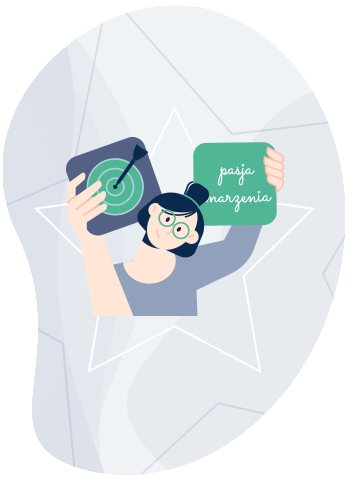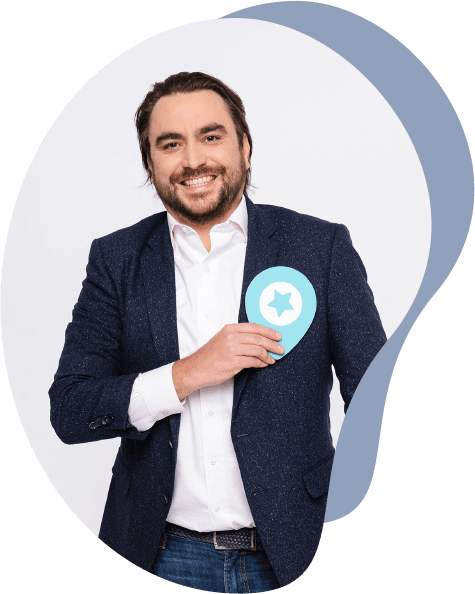Have you ever thought: “I’m useless, I don’t have enough skills, I could never do anything else”? I have. And that thought was the beginning of my career change. Today, I work as a freelance recruiter, but I started as an English teacher, café owner, and, of course, HR enthusiast.
If you’re wondering how to change careers in 2025, here’s my story and practical tips that can help you take the leap.
Why I Changed Careers: From Teaching to HR
For years, I worked as an English teacher. I loved the job, my students, and their parents. But there was one problem: I have tattoos and piercings, and while my students saw them as art, my peers and my bosses didn’t.
One day, the headmaster called me into his office. I had just pierced my nose a few days earlier. Calmly, he told me it “wasn’t well seen” by other staff and ordered me to take it out. I was shocked.
That evening, I went home and cried. But after the initial hurt, I decided to respond differently. The next day, I returned to school with the institution’s own mission statement on tolerance and diversity. I stood in front of my headmaster and said: “I am not going to take off my piercing. I am a passionate teacher with proven results. Students and parents value me. A piercing doesn’t change who I am.”
But in truth, the situation killed my passion for the job. I couldn’t keep working in a place that preached inclusivity but didn’t practice it.
Around that time, I met my ex father-in-law, who owned a coffee and ice-cream shop. He was looking for a manager. I had run my own language school for 12 years, so I thought: why not?
When I told him I wanted the role, he was shocked. I had a stable job, young kids, a flat, and my husband’s steady income. Why would I give it all up?
But two weeks later, I handed in my resignation. Within five months, I wasn’t just managing. I owned the café. Four years later, I employed 11 people. Still, something was missing. I’ve always been fascinated by people, HR, and building relationships. So I decided to explore a new path.
In 2022, I took an IT recruitment course, learned Boolean search and X-ray search, and built my LinkedIn network. By December, I landed my first freelance recruitment project with a tech startup.
Within two weeks, one of my sourced candidates got a job offer. That was the turning point: I realized I had found something that gave me purpose and satisfaction.
Common Career Change Fears and How to Overcome Them
Making a career switch is exciting, but it also brings fear. From speaking with candidates and my own journey, I saw that there are three barriers that most commonly stop people from making a change:
1. Financial worries and loss of stability
Many people fear they’ll lose income when changing industries.
How to overcome it:
- Build a financial safety net for 3–6 months.
- Start learning while keeping your current job.
- Transition step by step.
2. Lack of experience in a new industry
“I don’t have enough experience, so nobody will hire me.”
How to overcome it:
- Focus on transferable skills (communication, leadership, organization).
- Build a portfolio through projects, courses, or volunteering.
- Use freelance and internship opportunities as stepping stones.
3. Not knowing which new career to choose
Sometimes the hardest part is choosing the right path.
How to overcome it:
- Take career aptitude tests like Gallup CliftonStrengths.
- Research job market trends.
- Consult a career coach.
Step-by-Step Strategy for a Career Change in 2025
If you’re asking yourself how to change careers successfully, here’s a proven strategy:
- Analyze your skills and passions (try methods like Ikigai).
- Research the job market and future-proof professions.
- Set SMART goals (measurable, realistic, and time-bound).
- Choose your learning path: online courses, bootcamps, or internships.
- Build a portfolio: projects, GitHub repos, blog posts, or case studies.
- Network actively on LinkedIn and attend industry events.
- Apply early and don’t wait to meet 100% of the requirements.
How to Get Your First Job After a Career Change
The first job is the hardest to land, but it’s also the most important step.
Here’s what works in 2025:
- Tailor your CV: highlight transferable skills and explain your motivation. You don’t have to have a lot of experience to make your resume solid.
- Showcase a portfolio: even small, self-initiated projects matter. It’s more about showing skill and understanding of your niche rather than anything else.
- Leverage networking: most opportunities come from referrals and visibility. Word of mouth is your best friend. If you don’t know anyone in your desired field, use platforms like LinkedIn to make new connections. Most of my gigs come from referrals.
- Look for freelance or entry-level gigs: small projects can open big doors, and they can be on the side while you still keep your day job.
Career Change Frequently Asked Questions Answered
Is it too late to change careers after many years in one profession?
No. Career change is possible at any age or stage of life. What matters most is motivation, transferable skills, and a realistic plan. Many professionals successfully switch paths even after a decade or more in one role.
What are transferable skills, and why are they important in a career switch?
Transferable skills are abilities that can be applied across industries, such as communication, leadership, organization, problem-solving, and teamwork.
Even if you lack direct experience in a new field, highlighting transferable skills can convince employers of your potential.
How do I deal with the fear of losing financial stability during a career change?
Plan ahead by creating a financial cushion of at least three to six months. Consider transitioning gradually, learning new skills or freelancing on the side while staying in your current job. This reduces pressure and gives you more security.
What steps should I take to start a new career in 2025?
Begin with self-analysis (skills and passions), research future-proof industries, set SMART learning goals, build a portfolio, and expand your professional network. Most importantly, apply early, even if you don’t meet 100% of the job requirements. Motivation and willingness to learn are highly valued in today’s market.
Conclusion: Don’t Just Think About It, Start
When I left teaching, I thought I was trading stability for uncertainty. In reality, I was choosing growth. Running a café and then moving into HR and recruitment showed me that flexibility and willingness to learn are the most valuable skills in today’s job market.
If you’re considering a career transition in 2025, remember this: you don’t need to be perfect; you just need to begin.

